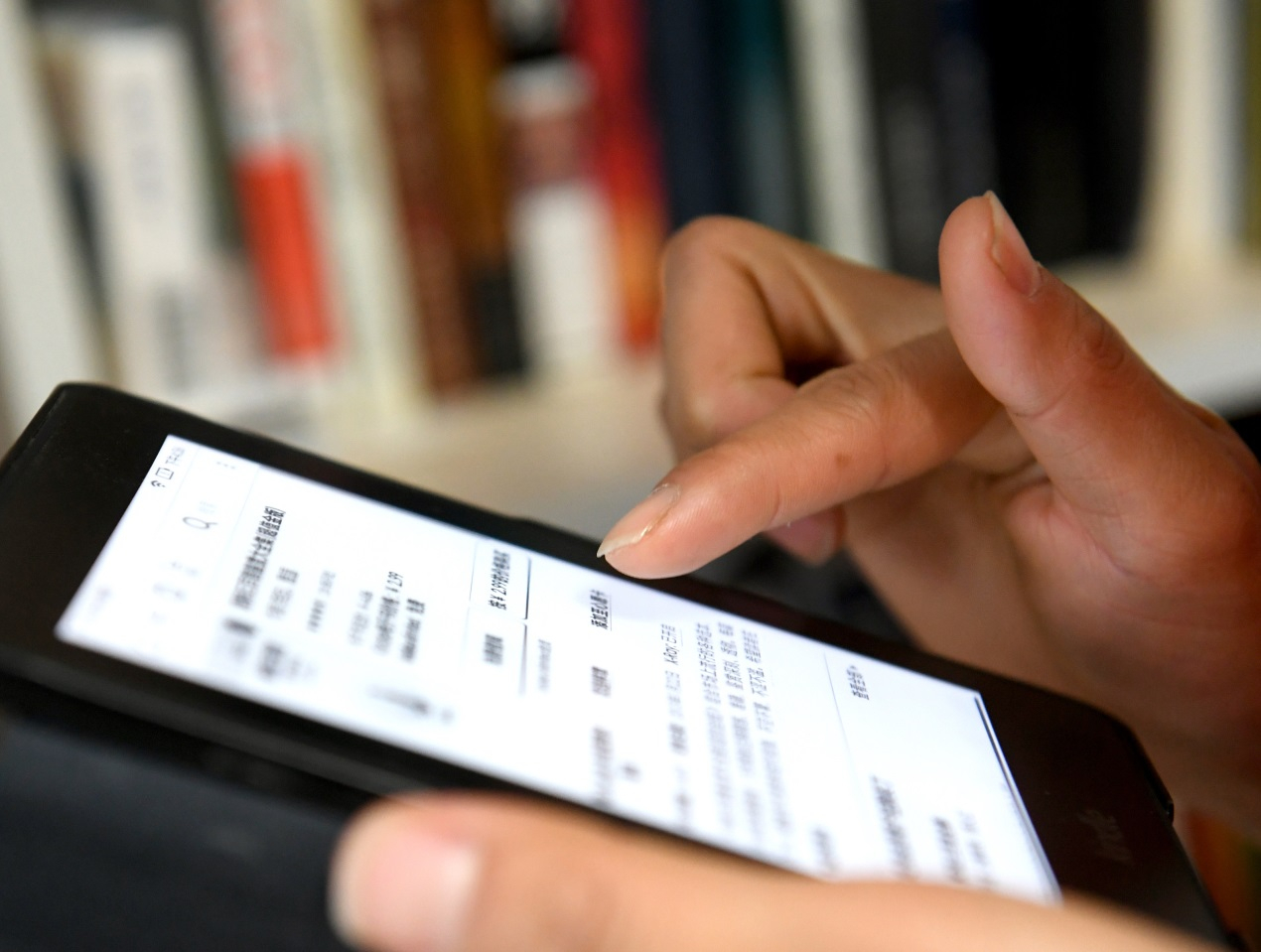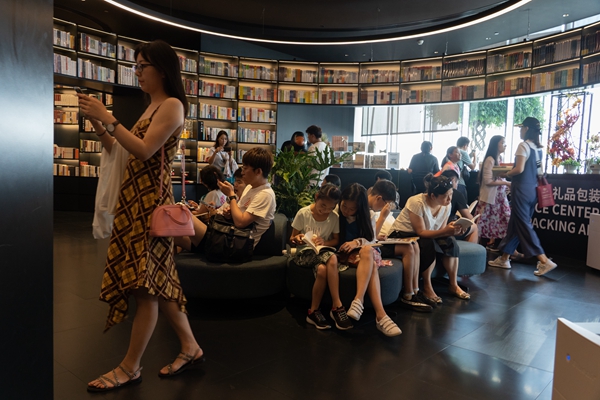
From the People's Daily app.
And this is Story in the Story.
With only about 20 percent of its population able to read in the 1940s, China has come a long way in achieving a literacy rate of more than 96 percent.
In recent years, the burgeoning digital era has further whetted the appetite of millions of bookworms, diversifying their reading habits.
Apart from the privacy of the living room, brick-and-mortar bookstores are still a major refuge for book lovers in China. Housed in busy shopping centers or stand-alone buildings, bookshops attract many with their relaxing environment. But visitors may not always be paying customers.
And the smaller, more specialized outlets are helping to boost sales for China's bookselling industry.
Today’s Story in the Story looks at how besides buying patterns, the venues for reading have also changed.

A reader uses kindle. (Photo: VCG)
"I come to the bookstore to see whether there are some new books, check the best-seller of the month, and see if there‘s something that I like," said Pan Yue.
"I do enjoy e-reading. It's convenient and a good choice for those who have long subway rides. With e-books I can find many resources online. It's the most convenient way."
A recent survey showed mobile devices have become the preferred way of reading and are making it more available. At the same time, reading has become an increasingly fashionable social activity. In cities like Beijing, it's easy to find a book club holding weekly activities at coffee shops.
"Though reading is more of a personal thing, discussions about books are popular on social platforms. We can make new friends through a book we all love. And by meeting offline, we take time to go deep into the text and exchange our views on the book or the writer," said He Jingtong, organizer of Solaris Book club.
At the same time, according to Zhongjin Yiyun Technology Co, which surveyed more than 5,000 bookshops all over China in the first half of 2019, small and medium-sized bookstores such as the new Duoyun branch have been important contributors to the resurgence of brick-and-mortar bookstores.
Duoyun Books is a member of the Shanghai Century Publishing Group. The brand's first store opened last year at Guangfulin Park, the site where relics of ancient culture dating back to the Neolithic Age were unearthed. According to Wang Lan, president of the group, the Guangfulin shop "represents the city's history, and the flagship store at Shanghai Tower represents the height of modern development in the city."

Located on the 52nd story of Shanghai Tower, the newly opened Duoyun Books, a supporting venue for the fair, is popular among readers. (Photo: China Daily)
The flagship store of Duoyun Books was arguably the most popular among the bevy of supporting venues of the recently concluded Shanghai Book Fair, drawing hordes of visitors, many of whom waited for hours outside the store.
Zhu Ying, vice-president of the technology company that provides big data analysis for the publishing and bookselling industries, said at a recent publishing industry forum that brick-and-mortar bookstores in the country achieved sales of 2.4 billion yuan in the first half of this year, an increase of 4.69 percent over the previous year.
Liu Xiaokai, a senior publishing official, also revealed at the same forum that "brick-and-mortar bookstores managed to achieve gradual growth despite instabilities in the economy, and this reflects the resilience of the industry."
Liu suggests that bookstores must find a distinctive competitive edge by exploring indigenous resources and local characteristics in order to stand out. He also praised how China's bookstores have been integrating diverse services, developing cultural merchandise and creating new consumption models.
Xiaofeng Bookstore, which is based in Hangzhou, Zhejiang province, is one example of how this integration has paid off. The store, which has been around for more than two decades, has participated in the Shanghai Book Fair for seven consecutive years.
"We have 15 stores altogether and 400,000 members now, but we started as a small neighborhood shop 23 years ago," said Zhu Yufang, general manager of the bookstore, during a forum at the book fair.
In a move to create a stable revenue stream, Xiaofeng entered the wholesale business, collaborated with other enterprises like Alibaba and developed cultural merchandise that proved popular at the Shanghai Book Fair.
"Our staff are greatly inspired by the enthusiastic customers at the Shanghai Book Fair that visit our pavilion every year," says Zhu.
(Produced by Nancy Yan Xu, Brian Lowe, Lance Crayon and Da Hang. Music by: bensound.com. Text from CGTN and China Daily.)


